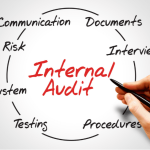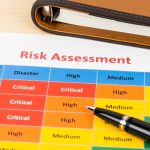Security Awareness Training (SAT) platforms are essential tools for organizations to reduce human-related cybersecurity risks, especially phishing and email-based attacks. These platforms combine training modules, gamified learning, phishing simulations, and analytics to help users recognize threats and make safer decisions. Phished uses micro-learning and behavioral risk … [Read more...] about The Top 10 Security Awareness Training Solutions For Business
Quality-Risk Management
The Hidden Cost of Shortcuts: Why We Risk It and What It Means for Quality Management
The article explores the deep-rooted psychological and organizational reasons behind our tendency to take shortcuts, even when we know the risks. Drawing on a relatable example—walking downstairs with both hands full—it illustrates how people often make risky decisions out of convenience or efficiency. While this might lead to a dropped phone in everyday life, in a quality … [Read more...] about The Hidden Cost of Shortcuts: Why We Risk It and What It Means for Quality Management
Compliance and Risk Management: Guide to Navigating Business Challenges
Effective compliance and risk management are essential for navigating today’s complex business environment. Organizations must align their compliance obligations with risk mitigation strategies to protect against legal penalties, financial losses, and reputational harm. By implementing structured frameworks, companies can proactively address regulatory requirements while … [Read more...] about Compliance and Risk Management: Guide to Navigating Business Challenges
Top 9 Audit Findings in Risk Management: Challenges and Action Plan
Risk management in 2025 faces increasing complexity, with audit reports repeatedly identifying critical weaknesses that leave organizations vulnerable. One major challenge is the inadequate integration of ESG (Environmental, Social, and Governance) risks into corporate risk models. Many companies fail to conduct ESG stress testing or incorporate these factors into their … [Read more...] about Top 9 Audit Findings in Risk Management: Challenges and Action Plan
The Quality Manager as Risk Manager
Risk management is essential for organizational success, as it helps businesses anticipate and respond to potential threats before they cause significant disruptions. The discussion highlights that risk can be both internal, such as staffing shortages or process failures, and external, like economic downturns or cybersecurity breaches. A quality manager’s role extends beyond … [Read more...] about The Quality Manager as Risk Manager
The Concept of Zero Defects in Quality Management
The Zero Defects philosophy, introduced by Philip Crosby, advocates minimizing defects and waste to achieve high-quality standards in processes and products. Though it is often misconstrued as striving for literal perfection, Zero Defects is better understood as a mindset of continuous improvement and achieving acceptable quality standards under even stringent metrics. Six … [Read more...] about The Concept of Zero Defects in Quality Management
Risk Management Uncovered: Common Sense Approaches and Practical Tools (Podcast)
This podcast explores the power of Pareto charts in quality management, emphasizing their effectiveness in identifying the root causes of operational issues. Rooted in the 80/20 principle, Pareto charts illustrate how a small percentage of causes can account for most problems, making them indispensable for process improvement. Their simplicity and clarity make them ideal for … [Read more...] about Risk Management Uncovered: Common Sense Approaches and Practical Tools (Podcast)
Ensuring Quality Control Testing After Manufacturing Shutdowns: Best Practices and Tips
Manufacturing shutdowns, while necessary for employee rest and operational resets, introduce risks to product quality when operations resume. Equipment may malfunction, materials may degrade, and returning employees may require workflow recalibration. Post-shutdown QC testing is critical to identify and address these risks, ensuring smooth production and high-quality … [Read more...] about Ensuring Quality Control Testing After Manufacturing Shutdowns: Best Practices and Tips
Crisis Averted: Mastering the Recall Management Process
Costco recently faced a significant recall of its Kirkland Signature butter due to the absence of a milk allergen warning on the label, despite milk being a key ingredient. This incident highlights the potential dangers of overlooking small but crucial quality management details, especially for allergens like milk, which is one of the “Big Eight” common food allergens. While no … [Read more...] about Crisis Averted: Mastering the Recall Management Process
CAPA Requirements in ISO 9001:2015
CAPA (Corrective and Preventive Action) is a core element of ISO 9001:2015’s quality management framework, aimed at addressing quality issues and preventing their recurrence or occurrence. Corrective actions react to existing problems by identifying and eliminating root causes, while preventive actions proactively mitigate potential nonconformities. ISO 9001 emphasizes that … [Read more...] about CAPA Requirements in ISO 9001:2015
When ISO 9001 Fails and Upgrading Your ISO Internal Audit Process
ISO 9001 certification is a significant milestone but not a panacea. Effective use of ISO 9001 involves adapting the system to organizational needs, addressing systemic issues, and avoiding pitfalls like ignoring procedures, clinging to outdated processes, or mis-applying the system. Companies must treat ISO 9001 as a dynamic framework to improve over time, focusing on learning … [Read more...] about When ISO 9001 Fails and Upgrading Your ISO Internal Audit Process
A Fresh Approach to Risk Assessment & FMEA
Lean and Six Sigma principles provide structured approaches to improving processes, reducing inefficiencies, and ensuring product and service quality. IDEXX, an organization with a diverse global customer base, illustrates the value of these methodologies, leveraging them to achieve significant growth and innovation. Central to this success is the focus on risk assessment and … [Read more...] about A Fresh Approach to Risk Assessment & FMEA
How to Assess an Organizations’ Internal Control Using a Risk-Based Approach
Mazars highlights the importance of a well-defined internal control system in maintaining organizational objectives, financial integrity, and law compliance. Effective internal controls, which encompass financial and operational processes, provide reasonable assurance that an organization operates efficiently, produces accurate reports, and complies with regulations. The COSO … [Read more...] about How to Assess an Organizations’ Internal Control Using a Risk-Based Approach
Compliance, risk, audit, and the business
While this story is more from a financial/safety compliance/risk perspective, it still underscores the complexities of managing compliance, safety, and risk, especially in highly regulated industries. It discusses a recent example from Tesla’s Fremont facility illustrates the ongoing challenges: regulatory bodies ordered Tesla to address frequent toxic emissions, showing how … [Read more...] about Compliance, risk, audit, and the business
FMEA in the Age of Industry 4.0
In the context of Industry 4.0, Failure Mode and Effects Analysis (FMEA) is adapting to address the increased complexity of manufacturing processes. Traditionally, FMEA assessed potential failure modes by analyzing severity, occurrence, and detection, which produced a Risk Priority Number (RPN) to guide risk mitigation efforts. However, this approach has limitations in modern … [Read more...] about FMEA in the Age of Industry 4.0
Supply Chain Risk Management 101: Everything You’ll Ever Need to Know
Supply Chain Risk Management (SCRM) is essential for businesses to secure operations and mitigate risks, especially in an era of increased disruptions. By identifying and assessing supply chain risks, companies can avoid costly disruptions, such as those seen in the semiconductor shortage or the Suez Canal incident. SCRM helps ensure compliance with legal and ethical standards … [Read more...] about Supply Chain Risk Management 101: Everything You’ll Ever Need to Know
Decision Rule Guidance for Metrology and Measurement Risk
In metrology, decision rules are crucial in ensuring that measurement results are accurate and reliable, determining whether products conform to specified standards. This process involves three key pillars: measurement uncertainty, metrological traceability, and decision rules. Measurement uncertainty accounts for the inherent doubt in any measurement, and it must be rigorously … [Read more...] about Decision Rule Guidance for Metrology and Measurement Risk
What is GRC: A Guide to Leveraging GRC for Effective ESG Strategy
Governance, Risk, and Compliance (GRC) is an essential operational strategy organizations use to manage governance, enterprise risk, and regulatory compliance efforts. Developed by the Open Compliance and Ethics Group (OCEG) in 2002, GRC aims to achieve “Principled Performance” by aligning a company's activities with its business goals. It encompasses three core principles: … [Read more...] about What is GRC: A Guide to Leveraging GRC for Effective ESG Strategy
A Systematic Literature Review of Failure Mode and Effect Analysis (FMEA) Implementation in Industries
Failure mode and effects analysis (FMEA) is a risk assessment tool developed in the 1960s by the aerospace industry. It is intended to identify and prevent potential failures in systems, processes, designs, or services before they reach the customer. It is extensively applied across various sectors, including automotive, aerospace, nuclear, and electronics. The primary … [Read more...] about A Systematic Literature Review of Failure Mode and Effect Analysis (FMEA) Implementation in Industries
Risk Management In Manufacturing Processes To Reduce The Total Cost Of Quality
The Pipes and Puddles framework aims to decentralize standards from a central authority to individual process owners, facilitating continuous improvement and reducing the total cost of quality. Traditional centralized standards create a burden of chore tasks that hinder improvement efforts. This new framework integrates Lean principles, the PDCA cycle, and risk analysis, … [Read more...] about Risk Management In Manufacturing Processes To Reduce The Total Cost Of Quality

















